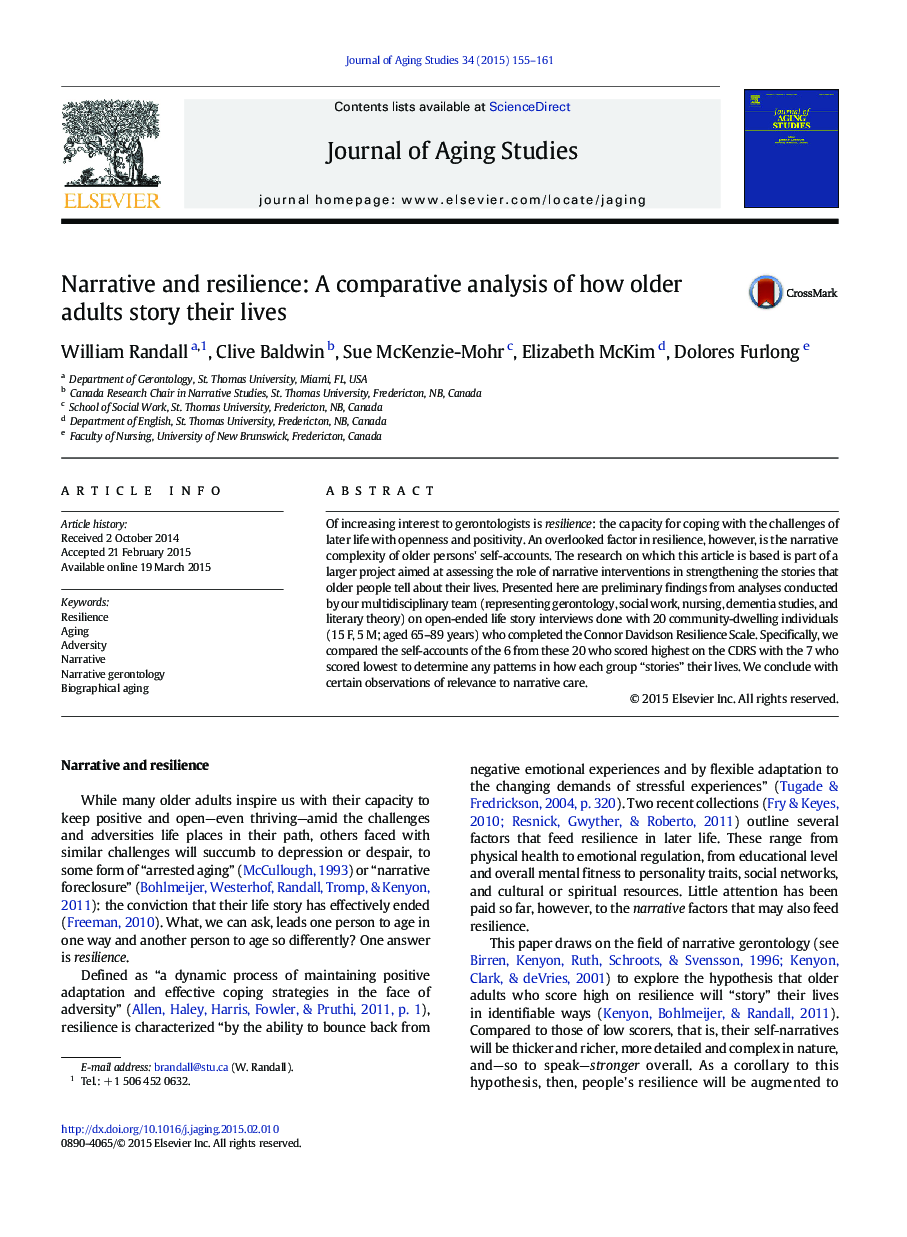| Article ID | Journal | Published Year | Pages | File Type |
|---|---|---|---|---|
| 1081779 | Journal of Aging Studies | 2015 | 7 Pages |
•Research on late-life resilience has overlooked narrative dimension.•More than 100 older adults completed the Connor–Davidson Resilience Scale (CDRS).•Fifteen highest, 15 median, and 15 lowest scorers on CDRS were interviewed about their life stories.•Twenty of the 45 interview transcripts have been analyzed to date re narrative complexity.•Of this 20, the 6 highest and 7 lowest scorers are compared here.
Of increasing interest to gerontologists is resilience: the capacity for coping with the challenges of later life with openness and positivity. An overlooked factor in resilience, however, is the narrative complexity of older persons' self-accounts. The research on which this article is based is part of a larger project aimed at assessing the role of narrative interventions in strengthening the stories that older people tell about their lives. Presented here are preliminary findings from analyses conducted by our multidisciplinary team (representing gerontology, social work, nursing, dementia studies, and literary theory) on open-ended life story interviews done with 20 community-dwelling individuals (15 F, 5 M; aged 65–89 years) who completed the Connor Davidson Resilience Scale. Specifically, we compared the self-accounts of the 6 from these 20 who scored highest on the CDRS with the 7 who scored lowest to determine any patterns in how each group “stories” their lives. We conclude with certain observations of relevance to narrative care.
